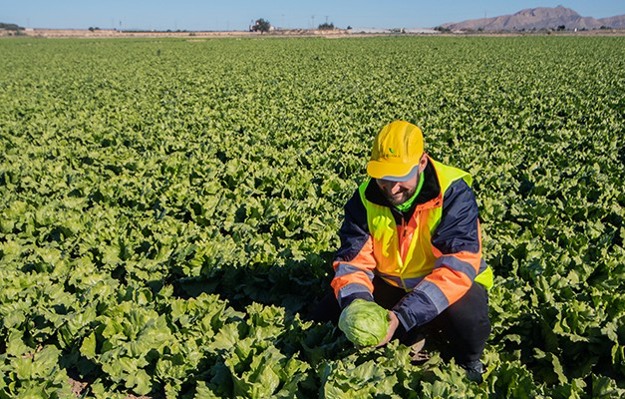The lettuce export campaign will end between 10 and 15 days earlier than expected in the producing areas of south-east Spain due to the acceleration of growth caused by higher than usual temperatures since last winter. The low prices of first-class lettuce have caused the consumption of processed products to fall by between 15 and 20%.
"The productions of lettuce specialties, such as Lollo or Oak Leaf, among others, started much earlier. Iceberg lettuce has also been growing a bit quicker, and the demand for it was already lower than usual, so the acceleration of its production has caused the supply to exert even more pressure," says Ginés Navarro, operations manager of the Murcian company Agridemur Marketing, a leading international supplier for processing companies.

"Up until week 14, we have been harvesting the production planned for weeks 15 and 16. The volumes are smaller, but they are covering the needs of our programs," he says.
Some countries in central and northern Europe already have local productions available. "Therefore, although we usually finish the export campaign around mid-May, this year we will finish in late April," says Ginés Navarro.
According to the operations manager of this company, even though there are lower volumes available, the prices of the products for processing have hardly experienced any variations. "The price of our products for processing is the same from October 15 to May 15. However, despite this price stability for the distributor and the final customer, the low prices of first-class vegetables have caused consumption of processed products to drop by between 15 and 20%. For this reason, we have not achieved the growth we expected at the beginning of the campaign."
Regarding the limited access to irrigation water due to drought in the vegetable producing areas of the Region of Murcia, Ginés Navarro says: "We producers have been conservative and have done our best to optimize the use of this scarce good. There has been an increase in the price of water, and a greater amount of it has come from desalination plants this year. Rains are very necessary to counteract the high salinity in the soils and to ensure optimal growing conditions."
For more information:
Ginés Navarro
Agridemur Marketing, S.L.
T: +34 968 587587
[email protected]
www.agridemur.com
